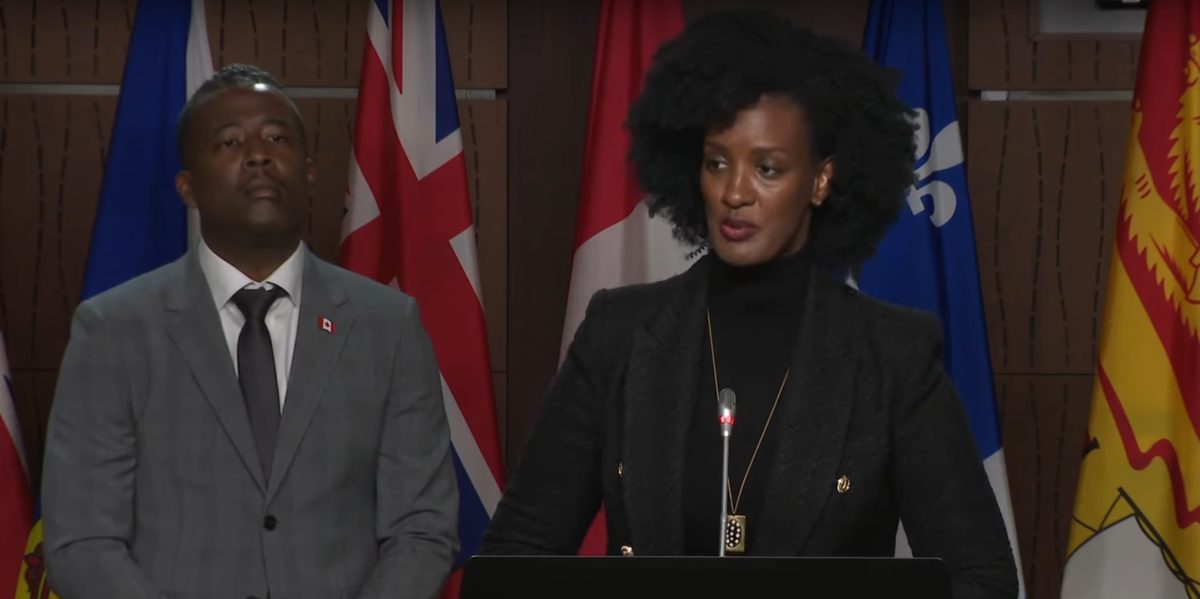One week after the Black Class Action Secretariat (BCAS) submitted a complaint to the United Nations arguing the federal government of Canada has systemically discriminated against and excluded Black Canadian public service workers, the federal government is pushing for the courts to dismiss a class action lawsuit related to the allegations.
The complaint argues Black Canadian workers in the public service have been denied employment and promotions for decades, while the government has failed to protect them from anti-Black racism in the workforce.
It comes more than one year after a class action lawsuit was launched against the federal government to the tune of $2.5 billion.
Sent to the UN Commission for Human Rights’ Special Rapporteur on contemporary forms of racism, racial discrimination, xenophobia and related intolerance, the complaint calls on the United Nations to hold Canada accountable for failing to follow international law.
Discrimination going back decades
The class action suit alleges that the Canadian government has more than 50 years of recorded inquiries, investigations, questionnaires, commissions, audits, and reports “that have evidenced institutional and systemic barriers that have resulted in the widespread practice of Black employee exclusion.”
The suit argues that the government’s remedies to anti-Black racism have not only failed to address the problem, but have instead “perpetuated and exacerbated the systemic inequalities and racism faced by Black Canadians.”
Speaking to reporters last week, BCAS executive director Nicholas Marcus Thompson declared that it’s time for the suffering of Black Canadian employees in the public service to be adequately addressed.
“Our members can readily recount instances of name-calling and racial slurs in the workplace, of not being hired or never being promoted, and always being excluded from the basic human rights in the workplace,” Thompson said.
The BCAS’ complaint to the United Nations is years in the making.
In December 2020, a class action suit was filed against the federal government on behalf of more than 45,000 Black federal public service employees who, according to the filing, were subjected to systemic racism, discrimination and employee exclusion through the course of their work.
“Black Canadians continue to experience anti-Black hate and anti-Black racism within Canada’s public service,” Thompson noted. “Knowing this, the government continues to drag its feet and battle Black Canadians in court. We cannot tolerate this anymore. Enough is enough.”
In partnership with Amnesty International, the BCAS aims to shed light on ”the historic and ongoing human rights violations faced by Black employees in Canada’s federal public service,” according to a September 28 press release.
Addressing discrimination is an international obligation
The complaint, which calls on the Special Rapporteur to investigate Canada’s violation of its obligation to abide by international treaties, demands the federal government meet its international obligations while establishing a coherent plan to address hiring and promotional gaps for Black Canadian workers.
Additionally, the BCAS is calling on the federal government to develop a plan to increase opportunities for professional development, as well as create a study and publicly report on systemic discrimination in the workforce in an effort to identify why persistent anti-Black cultures exist in the Canadian public service.
Amnesty International Canada’s Secretary General Ketty Nivyabandi argues that not only do these allegations compromise the dignity of racialized workers in the public service, but they also go against the country’s obligation under international law to eliminate discrimination in employment.
Nivyabandi also believes changes need to be made to Canada’s Employment Equity Act to better protect the rights of Black Canadian employees, noting that the legislation only recognizes four designated groups — women, Aboriginal peoples, persons with disabilities, and members of visible minorities.
“Grouping all minorities together renders the unique and intersecting forms of discrimination faced by Black employees invisible,” she said.
While the federal government launched a task force to review the Act in July 2021, Nivyabandi says that’s simply not enough.
Black women paying highest cost for broken system
“We are particularly concerned by the gendered dimension of racial discrimination in Canada’s public service,” she stated, pointing out that seven of every ten allegations of discrimination in the public service by federal employees in Canada are made by Black women. “This is contrary to the feminist commitments made by the Canadian government.”
According to Nivyabandi, Black women past and present pay the highest cost for their careers in the public service, noting that there are several allegations in the lawsuit of women who retired “broken and broke in a system they have served entire lives but which has failed to serve them in return.”
“Black women in Canada are particularly vulnerable to marginalization and the discriminations they face based on gender and race intersect and they compound discrimination,” she said. “We also know that racial discrimination affects women differently than men as this easily goes undetected and women often lack access to remedies or complaint mechanisms.”
The Black Class Action has received support from the Public Service Alliance of Canada, as well as the federal New Democrats.“Not only does the federal government need to get to the table to respect Black public service workers who have faced and continue to face discrimination at work, they must take a leadership role in understanding how policies continue to impact Black communities and contribute to systemic racism,” NDP Leader Jagmeet Singh told reporters last week.




